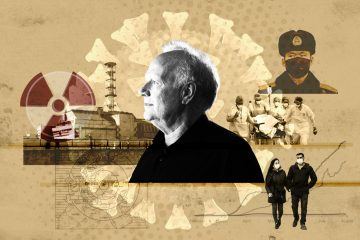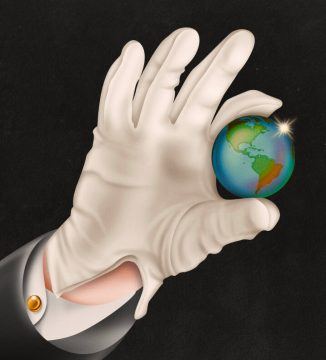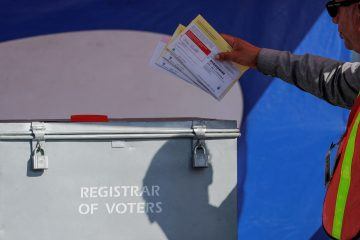 Madison Condon in Boston Review:
Madison Condon in Boston Review:
Over the past two years a striking change has taken place in the boardrooms of greenhouse-gas producers: a growing number of large companies have announced commitments to achieve “net zero” emissions by 2050. These include the oil majors BP, Shell, and Total, the mining giant Rio Tinto, and the electricity supplier Southern Company. While such commitments are often described as “voluntary”—not mandated by government regulation—they were often adopted begrudgingly by executives and boards acquiescing to demands made by a coordinated group of their largest shareholders.
This group, Climate Action 100+, is an association of many of the world’s largest institutional investors. With over 450 members, it manages a staggering $40 trillion in assets—roughly 46 percent of global GDP. Founded in 2017, the coalition initially was made up mostly of pension funds and European asset managers, but its ranks have grown rapidly, and last winter both J.P. Morgan and BlackRock (the world’s largest asset manager) became signatories to the association’s pledge to pressure portfolio companies to reduce emissions and disclose financial risks related to climate change.
Some critics think corporate “net zero” goals smack of greenwashing. That is a legitimate concern, but many of the latest commitments contain details that suggest they are more than just PR moves. Shareholders have pressed for tying executive compensation directly to the achievement of emissions goals. And some companies have begun to write down billions of dollars of fossil assets they previously claimed would be profitably sold. Emissions targets are not the only change investors are fighting for, either; they have been paying increasing attention to corporations’ efforts to thwart carbon regulation.
More here.

 Christy Hoffman and Sharan Burrow in Social Europe:
Christy Hoffman and Sharan Burrow in Social Europe: For many, insects are an annoyance and at best an inconvenience. They deserve and even demand to be dispatched to an abrupt and untimely demise. In Victorian England, on the other hand, insects were so revered that documenting and cataloguing them became a popular and passionate pastime. The eccentric banker Charles Rothschild is said to have stopped a train to allow his servants to capture a rare species of butterfly that he had spotted from a window. His daughter Miriam Rothschild, in between determining the mechanism by which fleas jump and establishing a dragonfly reserve on her estate, became a leading authority on the monarch butterfly, which she described as “the most interesting insect in the world.”
For many, insects are an annoyance and at best an inconvenience. They deserve and even demand to be dispatched to an abrupt and untimely demise. In Victorian England, on the other hand, insects were so revered that documenting and cataloguing them became a popular and passionate pastime. The eccentric banker Charles Rothschild is said to have stopped a train to allow his servants to capture a rare species of butterfly that he had spotted from a window. His daughter Miriam Rothschild, in between determining the mechanism by which fleas jump and establishing a dragonfly reserve on her estate, became a leading authority on the monarch butterfly, which she described as “the most interesting insect in the world.” Adam Tooze in Foreign Policy:
Adam Tooze in Foreign Policy: Sonam Kachru in Aeon:
Sonam Kachru in Aeon: One of the mysteries in politics for decades now has been why white working-class Americans began to vote Republican in large numbers in the 1960s and 1970s. After all, it was Democrats who supported labor unions, higher minimum wages, expanded unemployment insurance, Medicare and generous Social Security, helping to lift workers into the middle class. Of course, an alternative economic view, led by
One of the mysteries in politics for decades now has been why white working-class Americans began to vote Republican in large numbers in the 1960s and 1970s. After all, it was Democrats who supported labor unions, higher minimum wages, expanded unemployment insurance, Medicare and generous Social Security, helping to lift workers into the middle class. Of course, an alternative economic view, led by  On Thursday, when
On Thursday, when